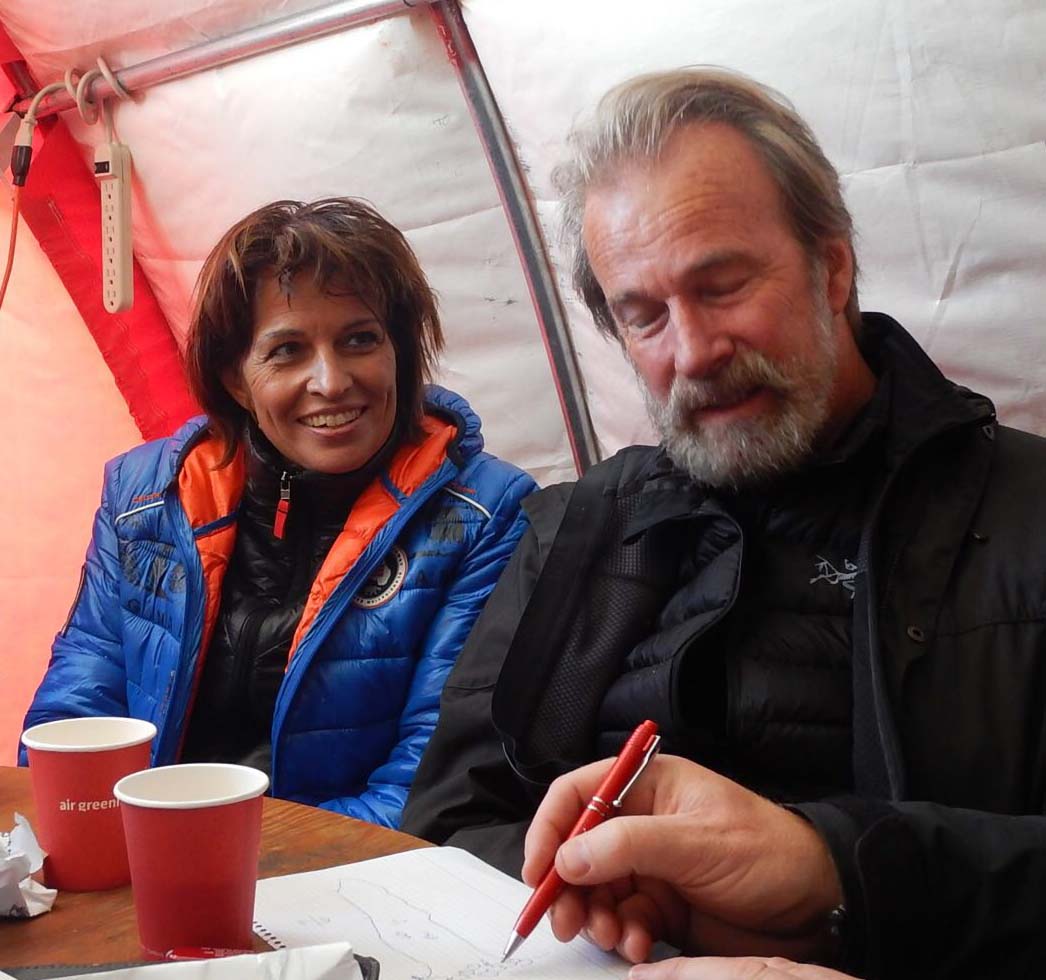
Greenland glacier named after Swiss climate researcher

Officials have paid homage to Konrad Steffen, a prominent Swiss glaciologist who died in Greenland in 2020, by naming a glacier in the north of the territory after him.
It was announcedExternal link on Monday that three glaciers in Greenland had been named after three glaciologists, who all made significant contributions to Greenland society and science – Konrad Steffen (1952-2020, Switzerland), Niels Reeh (1940-2009, Denmark) and Anker Weidick (1928-2020, Denmark). The Greenland Place Name Committee approved a proposal made by four scientific institutions on June 9.

The glacier in the north of the ice sheet now bears the name “Sermeq Konrad Steffen”.
Steffen, the former director of the Swiss Federal Institute for Forest Snow and Landscape Research WSL, spent much of his career studying Greenland’s glaciers and their dynamics. He died in a tragic accident whilst doing field work on the ice sheet near Ilulissat in 2020.
Gian-Kasper Plattner, head of research programmes at WSL, commented: “The decision to name one of Greenland’s breathtaking glaciers after former WSL director “Koni” Steffen is an extraordinary honour and distinction by the Greenlandic people and government for his contributions to Greenlandic science and society. Greenland – Kalaallit Nunaat as it is called in Greenlandic – was a very special place for Koni. He would be profoundly moved.”

More
Leading Swiss climate researcher dies in Greenland accident
Steffen, a dual Swiss/American, conducted research into climate change in the Arctic and Antarctic for more than 40 years. He had a successful career as a scientist after his doctorate in 1984 and taught at the University of Boulder, Colorado. From 2012 he was also professor for climate and cryosphere research at the federal institutes of technology in Zurich and Lausanne. He was also the scientific director of the Swiss Polar Institute.
His work took him to Greenland, an autonomous territory within the Kingdom of Denmark, every year. He established a series of automatic weather stations on the ice sheet, beginning in 1990. One of his main contributions was documenting recent increases in air temperatures and ice-sheet melt rates due to climate change.
In this video from 2018, Steffen talks about his work and the Swiss contribution to polar research:

In compliance with the JTI standards
More: SWI swissinfo.ch certified by the Journalism Trust Initiative






























You can find an overview of ongoing debates with our journalists here . Please join us!
If you want to start a conversation about a topic raised in this article or want to report factual errors, email us at english@swissinfo.ch.